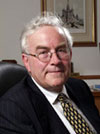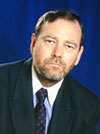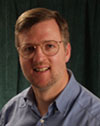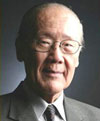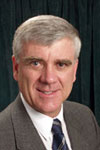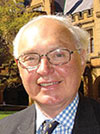Coral Bell is a Visiting Fellow at the Strategic and Defence Studies Centre, The Australian National University. She has held numerous postings during her long and distinguished career, including within the Diplomatic Service and as Professor of International Politics at the University of Sussex. She was awarded an Order of Australia in 2005. Her research interests are mainly in crisis management and the interaction of strategic, economic and diplomatic factors in international politics, especially as they affect US and Australian foreign policies. Her articles have appeared in a number of leading international journals, such as Foreign Affairs, The National Interest and The American Interest. Recent publications have included Living with Giants: Finding Australia’s place in a more complex world, and A World Out of Balance: American Power and International Politics in the Twenty-First Century. She also contributed ‘The International System and Changing Strategic Norms’ in (eds) R. Ayson and D. Ball, Strategy and Security in the Asia-Pacific. Her next paper (to be published in early 2008 by the Lowy Institute for International Policy) is The End of the Vasco da Gama Era: The next landscape of world politics.
Paul Dibb is Emeritus Professor and Chairman of the Board at the Strategic and Defence Studies Centre, The Australian National University. He was formerly a Deputy Secretary of Defence, and Director of the Australian Joint Intelligence Organisation. His research interests are Australian defence policy, regional security, and alliance relationships, and his publications reflect these interests. They include The Soviet Union: The Incomplete Superpower; Towards a New Balance of Power in Asia; (with Robert D. Blackwill) America’s Asian Alliances; and Essays on Australian Defence. He also contributed ‘America and the Asia-Pacific Region’ in (eds) R. Ayson and D. Ball, Strategy and Security in the Asia-Pacific. His articles have appeared in a range of leading international journals, including Survival, Orbis and Washington Quarterly. He was also the author of the highly-influential 1986 Review of Australia’s Defence Capabilities.
Graeme Dobell is one of the Australian Broadcasting Corporation’s most experienced reporters of Asia Pacific affairs. Previously the ABC’s Southeast Asia radio correspondent in Singapore, he is now the Canberra-based Foreign Affairs and Defence Correspondent for Radio Australia, reporting also for ABC radio news and current affairs programs. He joined the ABC in 1975 and has concentrated mostly on reporting politics and international affairs, serving as a correspondent in Europe, America and throughout Asia and the Pacific. Since 1985, Graeme Dobell has focused on reporting the affairs of the Asia Pacific region and has covered the APEC summits and the security dialogue of the ASEAN Regional Forum. Assignments in his career as a correspondent have included the Falklands War, coups in Fiji, Thailand and the Philippines, Beijing after the crushing of the pro-democracy movement in Tiananmen Square and the return of Hong Kong to China. He is the author of Australia Finds Home—The Choices and Chances of an Asia Pacific Journey, a 400 page book on Australia’s relationship with the Asia Pacific, published by ABC Books.
Greg Fealy is Fellow and Senior Lecturer, Indonesian Politics, in the Department of Political and Social Change (a joint appointment with the Faculty of Asian Studies) at The Australian National University. He has held various positions, including as a Visiting Professor in Indonesian Politics at the Johns Hopkins School of Advanced International Studies; as a lecturer in Southeast Asian History at Monash University; as an Indonesia analyst with the Australian Government; and as a consultant on Indonesian civil society and election programs. His research interests are Indonesian politics, modern Islamic political history, Islam and civil society, and the impact of globalisation on religion and culture in Southeast Asia. Recently, he has examined transnational Islamist and neo-revivalist movements in Indonesia, as well as terrorism in Southeast Asia and trends in contemporary Islamic politics. Three co-edited publications include (with V. Hooker) Voices of Islam in Southeast Asia: A Contemporary Sourcebook; (with A. Borgu) Local Jihad: Radical Islam and terrorism in Indonesia; and (with A. Bubalo) Joining the Caravan? The Middle East, Islamism and Indonesia. He contributed ‘Half a Century of Violent Jihad in Indonesia: an Historical and Ideological Comparison of Darul Islam and Jema’ah Islamiyah’, in (eds) M. Vicziany and D. Wright-Neville, Islamic Terrorism in Indonesia: Myths and Realities; and ‘Islamisation and politics in Southeast Asia: The contrasting case of Malaysia and Indonesia’, in (eds) N. Lahoud and A. Johns, Islam in World Politics.
Wang Gungwu is Professor at the National University of Singapore, and Emeritus Professor at The Australian National University (where he was Professor and Head of the (then) Department of Far Eastern History, and Director of the Research School of Pacific Studies). He has taught at the University of Malaya and was Vice-Chancellor of the University of Hong Kong between 1986 and 1995. He has held high-level positions in other institutions, including as a former President of the Australian Academy of the Humanities; Foreign Honorary Member of the American Academy of Arts and Science; and Honorary Member of the Chinese Academy of Social Science. Appointments in Singapore include Chairman of the East Asian Institute, the Institute of Southeast Asian Studies and the Lee Kuan Yew School of Public Policy; and Vice-Chairman of the Chinese Heritage Centre. He has been awarded a CBE along with numerous academic and cultural prizes. A prolific and respected author, his books (in English) since 1995 have included The Chinese Way; China’s Position in International Relations; China and Southeast Asia: Myths, Threats, and Culture; The Chinese Overseas: From Earthbound China to the Quest for Autonomy; Don’t Leave Home: Migration and the Chinese; Anglo-Chinese Encounters since 1800: War, Trade, Science and Governance; and Divided China: Preparing for Reunification 883–947. In 2004 he was the subject of Gregor Benton’s Diasporic Chinese Ventures: The Life and Work of Wang Gungwu.
David Horner is Professor of Australian Defence History at the Strategic and Defence Studies Centre, The Australian National University, and Official Historian Peacekeeping and Post-Cold War Operations. He served for 25 years in the Australian Regular Army, including active service in South Vietnam. Since 1994 he has been editor of the Army History Series and, from 1998 to 2002, was head of the Australian Army’s Land Warfare Studies Centre. His research interests include Australian defence history, particularly strategy, command, intelligence and operations and current defence issues. Currently, he heads the joint ANU-Australian War Memorial’s major project on the Official History of Australian Peacekeeping and Post-Cold War Operations. He is also an adviser to television programs and a highly-regarded author whose volumes include High Command, Australia and Allied Strategy, 1939-1945; The Gunners: A History of Australian Artillery; Inside the War Cabinet: Directing Australia’s War Effort, 1939-1945; (with D. Ball) Breaking the Codes: Australia’s KGB Network; Blamey: The Commander-in-Chief; Defence Supremo: Sir Frederick Shedden and the Making of Australian Defence Policy; ‘Making the Australian Defence Force’ (Volume 4 of The Australian Centenary History of Defence); and Strategic Command: General Sir John Wilton and Australia’s Asian Wars.
Ron Huisken is Senior Fellow at the Strategic and Defence Studies Centre, The Australian National University. He has held a variety of research and teaching positions in Australia and overseas, together with assignments in the United Nations and the Australian Public Service. He spent a number of years with the Stockholm International Peace Research Institute working particularly on military expenditures, naval forces and nuclear arms control. At the UN Department of Disarmament Affairs, he played a key role in producing a landmark study on the relationships between disarmament and development. In government in Australia, he worked predominantly on arms control issues with the Department of Foreign Affairs and Trade and on alliance management questions with the Department of Defence. He also served as deputy Chief of Mission in the Australian embassy in Bonn in 1990–94. He returned to academia in 2001 where his research interests include East Asian security, alliance politics, and proliferation. His publications include (with F. Barnaby) Arms Uncontrolled; The Origin of the Strategic Cruise Missile; and The Road to War on Iraq.
Robert O’Neill is currently Planning Director of the United States Studies Centre of the University of Sydney. He is a widely respected authority in the field of strategic studies who has served in the Australian Regular Army, and taught military history at the Royal Military College of Australia. During periods spent in the United Kindgom, he has been director of the International Institute for Strategic Studies in London, Chichele Professor of the History of War at the University of Oxford and a Fellow of All Souls College. He has held many prominent appointments, including as Chairman of the Council of the IISS (1996–2001), Chairman of Trustees of the Imperial War Museum, London (1998–2001), Chairman of the Council of the Centre for Defence Studies, King’s College, London (1991–96), and Chairman of the Sir Robert Menzies Centre for Australian Studies in the University of London (1990–96). He is also a former director of both the International Peace Academy, New York, and the Ditchley Foundation, Oxfordshire, and a former member of the Canberra Commission on the Elimination of Nuclear Weapons established by the Australian Government in 1995–96. On retirement from the University of Oxford in 2001 he became Chairman of the Council of the Australian Strategic Policy Institute in Canberra until 2005. He was also Deputy Chairman of the Board of the Graduate School of Government at University of Sydney (2003–2005) and remains a board member of the Lowy Institute for International Policy. His research interests focus on war and warfare in the past and present, and ways of resolving international tensions. While Head of the Strategic and Defence Studies Centre at ANU (1970–82), he wrote the Official History of Australia’s role in the Korean War and he is also the former Armed Services Editor of the Australian Dictionary of Biography (1970–2001). He was elected a Fellow of the Academy of the Social Sciences in Australia in 1978 and awarded an Order of Australia in 1988.
Brendan Taylor is a lecturer in the Graduate Studies in Strategy and Defence program at the Strategic Defence Studies Centre, The Australian National University. He is the course coordinator for the program elective ‘The US and East Asian Security’. His research interests include Northeast Asian security, American foreign policy, economic statecraft, and alliance politics. He lectures to a number of undergraduate and postgraduate classes at The Australian National University—where he coordinates Masters-level courses on ‘Asia-Pacific security’ and ‘The US and East Asian security’—as well as to various Australian Defence Colleges and public fora. He is a member of the Australian Committee of the Council for Security Cooperation in the Asia-Pacific. His publications have appeared in such leading international journals as Asian Security, Comparative Strategy, and the Australian Journal of International Affairs. He also co-authored (with D. Ball and A. Milner) Mapping Track II Institutions in New Zealand, Australia and the Asian Region, An Independent Study Submitted to the Asia New Zealand Foundation in March 2005.
Mark Thomson began his career as an academic working in theoretical physics. As a scientist he held research and teaching posts in Australia and the United Kingdom. In the mid-1990s he joined the Department of Defence and commenced work in the Force Development and Analysis division scrutinising capability development proposals. Over the next five years he held a diverse range of jobs in the department, which saw him working on budget management, organisational change and force development. In this period, he was deployed on operations as a Civilian Truce Monitor to Bougainville in 1997 and as Political Military Advisor to the INTERFET Commander in 1999. In 2002 he joined the newly-formed Australian Strategic Policy Institute as inaugural director of the Budget and Management Program. His research touches on a wide range of issues including Australia’s defence and security budgets, links between strategy and force structure, the internal management of the Department of Defence and defence industry.
Hugh White is the Professor of Strategic Studies and the Head of the Strategic and Defence Studies Centre, The Australian National University. Before taking up that position he was the first Director of the Australian Strategic Policy Institute. He has worked in strategic policy and related fields for two decades. He has served as an intelligence analyst with the Office of National Assessments, as a journalist with the Sydney Morning Herald, and as a senior adviser on the staffs of Defence Minister Kim Beazley and Prime Minister Bob Hawke. Between 1995 and 2000 he was also Deputy Secretary for Strategy and Intelligence. He teaches ‘Australian Defence and Strategic Planning’ and contributes to the Graduate Studies in Strategy and Defence program’s core courses. He has written on a wide range of Australian defence policy issues and is also a regular commentator in print and other media. He recently appeared on episode 5 (‘Australians on the Front Line’) of the ABC television program ‘Difference of Opinion’. Recent publications include Beyond the Defence of Australia: finding a new balance in Australia’s defence policy and (with E. Wainwright) Strengthening Our Neighbour: Australia and the Future of Papua New Guinea. He has also contributed ‘The New Australia-Indonesia Strategic Relationship—A Note of Caution’, in (ed.) J. Monfries, Different Societies, Shared Futures: Australia, Indonesia and the Region; ‘Old, New or Both? Australia’s Security at the Start of the New Century’, in (eds) D. McDougall and P. Shearman, Australian Security After 9/11; and ‘Australian Strategic Policy’, in (eds), A. Tellis and M. Wills, Strategic Asia 2005-06: Military Modernisation in an Era of Uncertainty; ‘The Ethics of Invasion: Jus ad Bellum and Iraq’, in (eds) T. Coady and M. O’Keefe, Righteous Violence: The Ethics and Politics of Military Intervention; and the chapter on Defence in (eds) J. Cotton and J. Ravenhill, Trading on Alliances: Australia in World Affairs 2001-2005.

